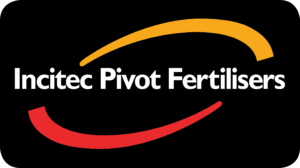Incitec Pivot Fertilisers

Incitec Pivot Fertilisers (IPF) manufactures around 1.7 million tonnes of predominantly nitrogen and phosphorus fertilisers in Australia. The domestic distribution business provides Australian farmers with around 2 million tonnes a year while Quantum, the international trading arm oversees export operations and procurement / trading.
In footprint IPF supplies around half of agricultural fertiliser demand supported by Nutrient Advantage Lab Services at Werribee, which processes soil, plant tissue and water samples in to generate fertilisers recommendations based on 4Rs principles (Right Product; Right Rate; Right Place; Right Time).
IPF has been actively involved in research into urease and nitrification inhibitors and controlled release coatings, and more generally agronomy for many years, as indicated by their high level of collaboration across multiple research partners. IPF fosters a positive research environment and ensures that research outcomes provide a real industry benefit. Staff from IPF (PIs Walker and Khalil) are involved in advisory panels for PhD students at the University of Melbourne and regularly contribute expertise to research programs, including student projects. These PIs will also co-supervise the PhD students to be involved in this Hub. IPF will also provide commercial enablers like a production lab and pilot production facilities for testing of new formulations under factory conditions.
IPF will contribute $3.8 million in cash and $1.26 million in-kind over the life of the Hub. It will also contribute substantial scale up and commercialisation experience. Until recently, IPF was the only Australian business to commercialise Enhanced Efficiency Fertilisers into mainstream agriculture in Australia. IPF also has a track record of successful commercialisation of in- house technologies – the Granulock range represents a significant portion of ammonium phosphate fertilisers supplied by IPF while Easy N is a liquid nitrogen product that has taken significant market share from conventional granular urea.
